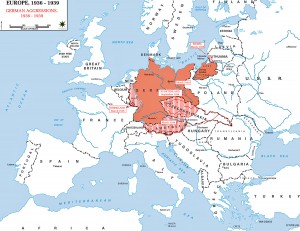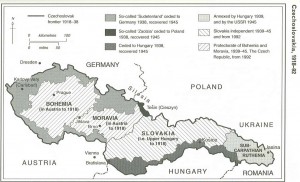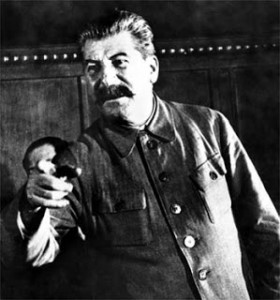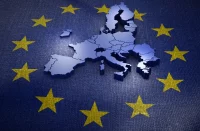In the previous chapters of the Episodes, we looked at the British policy towards Nazi Germany, which was designed to pit the Fuhrer against Soviet Russia. To accomplish this, Hitler was provided with substantive economic and political assistance between 1933 and 1939, Germany’s biggest industrial areas that had been lost after WWI were returned, and a blind eye was turned to the Austrian Anschluss, as well as to the persecution of Jews in Germany and in the occupied territories. Great Britain, France, and the United States were actively involved in the war in Spain on the side of Franco’s insurgents, who were also supported by Hitler. And as a result of secret agreements between London and Berlin, the independent nation of Czechoslovakia was sacrificed to Hitler in September 1938. In this chapter, we will explain why less than a year later, in September 1939, the Fuhrer had turned into a “defiant aggressor” in the eyes of his British patrons.

How did far-off London view the scenario of war between Germany and the Soviet Union? Quite simply: Germany was to launch an offensive, using the economic, territorial, and political opportunities she was provided. The Polish people were also involved in this conflict, as they had long dreamed of the revival of “Greater Poland,” which was to include a sizable chunk of land from Ukraine, Belarus, and Russia. Hitler might defeat Russia quickly or find himself completely bogged down there, but this was of no significance. At London’s instruction, Germany, threatened from behind by Poland, would find that the “spigot had been shut off.” Poland would close the gates, leaving the German troops without ammunition or fuel. And then the British and Americans would appear in the midst of the conflict. As peacemakers, naturally. And the celebration of “freedom” and “democracy” would begin:
• In the USSR power would change hands in favor of democracy, meaning a government that would accept responsibility for all the tsar’s debts, return nationalized industries to their Western owners, and allow oil to be pumped, diamonds to be mined, and Russian forests to be leveled – practically for free.
• In Germany, Hitler, who had embroiled Germans in a conflict with the entire civilized world, would be replaced by generals.
The presence of Polish troops on the country’s borders, and in a position to threaten the rear of the German army operating in Russia, would make it virtually impossible for the Germans to put up a fight. At this point, human-rights activists and journalists would be forced to suddenly wake up and “see” the atrocities being committed by the Nazis. Afterwards – the Nuremberg Trials, the condemnation of Nazism, the execution of its leaders – in short, everything that actually did happen.
It is important to understand that although they were pitting Hitler against Russia, the Anglo-Saxons were in no way planning to make him an equal or to seat the Fuhrer next to them at their own “table.” After his difficult, bloody work in the vast expanses of Russia, what awaited Adolf was not an egalitarian partnership with the lords and nobles, but rather a dock in court or a vial of poison. Once it had completed its dirty work to rid Russia of the Bolsheviks (or, more precisely, of the Russians themselves), Nazism was to fade into history. And a grateful mankind would love the British, the French, and the Americans all the more for ensuring their salvation from the horrors of fascism. Czechoslovakia, Austria, and the Baltic states would once again become “independent” and “free.” Until the next time, when their masters needed to again offer up these “liberated” peoples as a sacrifice in the course of their political games.
We have provided only a tentative and cursory outline of this plan for future aggression. Since events played out quite differently in reality, no one ever spoke of how everything had been “planned.” The future victors of WWII – those who were directly responsible for organizing it – would in that event be cast in an unpleasant light.
Did the Kremlin understand this game of solitaire that was being played on the political table of Europe by the governments of England and France? Of course. One would have to be blind not to be able to see and note whose death had formed the basis for the active expansion of Hitler’s Reich. Back on March 1, 1936, well before Hitler was given Austria and Czechoslovakia, Joseph Stalin was interviewed by the American journalist Roy Howard. And so, in answer to the question, “How does the Soviet Union envisage such aggression by Germany? From what position, in what direction would the German forces operate?” the leader of the USSR responded as follows:
“History shows that when any state intends to make war against another state, even not adjacent, it begins to seek for frontiers across which it can reach the frontiers of the state it wants to attack. Usually, the aggressive state finds such frontiers … I do not know precisely what frontiers Germany may adapt to her aims, but I think she will find people willing to ‘lend’ her a frontier.”[1]

As we have seen, Joseph Stalin was right: Hitler was “loaned” Austria and Czechoslovakia, and then slowly but surely he was led to the Soviet border. In order to accomplish what was required, the Fuhrer needed to be given more than just the Sudetenland – he had to have the entire territory of the Czechoslovak state handed over to him. Beyond the Czech lands lay Slovakia, and bordering it, facing Soviet Ukraine, was a key area for the organization of a future war against Russia – Sub-Carpathian Ruthenia.
Even the most duplicitous aggressor needs a pretext for launching a war. The more plausible the better. And this excuse was created for Hitler. There were plans to hand Hitler the remainder of Czechoslovakia, along with Slovakia, part of which consisted of Carpatho-Ukraine. A very simple method was planned for violating the guarantees made to the Czechs in Munich and for honoring the agreement with Hitler. In one conversation, the British prime minister, Neville Chamberlain, said bluntly: …because of the “internal disruption to the State whose frontiers we had proposed to guarantee … His Majesty’s Government cannot accordingly hold themselves any longer bound by this obligation.” That guarantee only applied in the event of unprovoked aggression.[2]
The West guaranteed the physical integrity of the remnants of the Czechoslovak state only if it were attacked. But should it self-destruct, no guarantees would apply! This was precisely the mechanism for handing over the entire territory of Czechoslovakia over to Hitler.
The Fuhrer still did not possess even a sliver of land populated by ethnic Ukrainians, but the Western press raised such a howl that it literally provoked Hitler to take aggressive action against the USSR. Assiduous journalists openly prompted the Fuhrer’s next steps, as they made it clear that his actions would be met with understanding and support in European capitals. “Why should Germany risk going to war with Britain and France and demand colonies that would provide her with much less than she would find in the Ukraine?” ranted the Parisian newspaper Gringoire, on Jan. 5, 1939. That paper unstintingly painted a detailed picture of the untold wealth – an abundance of food, grain, and mineral resources – that awaited its new owners. And it was all right next door, barely more than a hundred kilometers away!
Rumors that Hitler was about to advance on the Ukraine caused a flurry of excitement for the global political Olympus. The French ambassador to Germany, Robert Coulondre, cited conversations with Nazi leaders when he reported in Paris: “It seems that the ways and means are yet to be determined, but the goal seems to have been set – to create a Greater Ukraine, which will serve as the breadbasket of Germany. To achieve this it will be necessary to conquer Romania, come to some agreement with Poland, and carve off land from the USSR. German dynamism will not falter before a single one of these challenges, and military circles are already talking about a march toward the Caucasus and Baku.”[3]
But then something happened that forced history to take a different course. On March 10, 1939, Joseph Stalin gave a speech that was for the first time broadcast on Soviet television. This address is so crucial to a proper understanding of future events that we must ask the reader to be patient and carefully read the main points of Stalin’s speech, as well as our comments:
 “… Here is a list of the most important events that marked the beginning of a new imperialist war. In 1935 Italy attacked and captured Abyssinia. In the summer of 1936, Germany and Italy organized a military intervention in Spain, while Germany established a foothold in the north of Spain and in Spanish Morocco, and Italy – in the south of Spain and on the Balearic islands. In 1937, Japan, having seized Manchuria, invaded northern and central China, occupied Peking, Tianjin, and Shanghai, and began to squeeze its foreign competitors out of the occupied zone. In early 1938, Germany captured Austria, and in the fall of 1938 – the Czech Sudetenland. At the end of 1938, Japan seized Canton, and in early 1939 – Hainan Island …
“… Here is a list of the most important events that marked the beginning of a new imperialist war. In 1935 Italy attacked and captured Abyssinia. In the summer of 1936, Germany and Italy organized a military intervention in Spain, while Germany established a foothold in the north of Spain and in Spanish Morocco, and Italy – in the south of Spain and on the Balearic islands. In 1937, Japan, having seized Manchuria, invaded northern and central China, occupied Peking, Tianjin, and Shanghai, and began to squeeze its foreign competitors out of the occupied zone. In early 1938, Germany captured Austria, and in the fall of 1938 – the Czech Sudetenland. At the end of 1938, Japan seized Canton, and in early 1939 – Hainan Island …
“One characteristic feature of the new imperialist war is that it has not yet become a universal or world war. The war is being waged by aggressor nations, which in every way infringe upon the interests of non-aggressor states, primarily England, France, and the United States, and the latter withdraw and retreat, making concession after concession to the aggressors. Thus, we are witnessing a blatant carving up of the world and its spheres of influence, at the expense of the non-aggressor states, without any attempt at resistance, and with even a bit of their acquiescence. It is hard to believe, but it is so.”
The Kremlin watched with concern as the “miracles” of peacemaking gripped the strongest global powers. However, it was under no illusions about why this was happening.
“What can explain the odd and lopsided nature of this new imperialist war? How is it that supremely capable, non-aggressor nations could so easily and without resistance abandon their positions and their obligations in favor of the aggressors? Could this be attributed to the weakness of the non-aggressor states? Certainly not! Taken as a group, the non-aggressive, democratic states are without question stronger than the fascist states, both economically and militarily.
“So how do we explain these states’ systematic concessions to the aggressors? The main reason is that the majority of non-aggressor countries, especially Britain and France, abandoned their policy of collective security and collective resistance to the aggressors, moving to a position of non-intervention, a position of ‘neutrality’ … In reality, however, the policy of non-interference means condoning aggression, the outbreak of war – and, consequently, its transformation into a world war.
“The policy of non-intervention betrays a desire not to impede the aggressors in their shameful deeds, not to obstruct, for example, Japan’s involvement in its war with China, and even better – with the Soviet Union, and not to deter Germany, for example, from getting caught up in events in Europe or from getting involved in a war with the Soviet Union. A motive can be seen to allow all the participants in the hostilities to sink deeply into the quicksand of war, to surreptitiously urge them onward, to allow them to weaken and exhaust each other, and then, when their strength has been sufficiently sapped – to appear on the scene with fresh forces, to take a stand, ‘in the global interest’ naturally, and to dictate conditions to the crippled belligerents.”
Stalin was frankly and openly divulging the precise plans that would never materialize, but which at that moment constituted the main threat to the USSR. Why did events take a different turn? Because Stalin was speaking directly to Hitler about the fate that awaited Germany: weakened by war with the USSR, the Germans (and also the Japanese) would be subjected to the harsh dictates of the “non-aggressor states” as they followed their policy of “non-intervention.”
“Or, take Germany, for example. Austria was surrendered to her, and, despite an obligation to protect its independence, the Sudetenland was also surrendered, Czechoslovakia was abandoned to its fate, violating all manner of commitments, and then vociferous lies were published in the press about ‘the weakness of the Russian army,’ the ‘disintegration of the Russian air force,’ and the ‘disorder’ in the Soviet Union, urging the Germans farther east, promising them a soft target, and continually saying, ‘Just start a war with the Bolsheviks and all will go well.’ One must acknowledge that this all sounds very much like inciting and encouraging an aggressor.
“This characterizes the clamor in the Anglo-French and North American press over Soviet Ukraine. Important journalists have shrieked until they were hoarse that the Germans were marching on Soviet Ukraine, that they already hold what is known as Carpathian Ukraine, with a population of about 700,000, and that the Germans as early as this spring will annex Soviet Ukraine, with a population of over 30 million, to what is known as Carpathian Ukraine. It looks as though this peculiar ruckus is intended to provoke the Soviet Union’s fury against Germany, to poison the atmosphere, and to trigger a conflict with Germany for no apparent reason.”
The appeal being made to Hitler was clear and simple: if you are provoked to attack, we will be provoked to defend ourselves. And while we are embroiled in our fight, “they” will divide up our natural resources and once again bleed Germany dry. Is this what you need, Adolf Hitler? Is this why you founded your political party and set about dragging Germany from the abyss into which she was driven by the venal Weimar politicians?
And then Stalin speaks bluntly to Hitler:
“It is even more telling that some politicians and influential journalists in Europe and the US have lost patience waiting for the ‘march on Soviet Ukraine’ and are themselves beginning to expose the real meaning of the policy of non-intervention. They speak directly and write in black and white that the Germans have cruelly ‘disappointed’ them because, instead of advancing farther east against the Soviet Union, well, they have turned westward and are demanding colonies. One might think that the Germans had been given those regions of Czechoslovakia as the price of their commitment to launch a war against the Soviet Union, and now the Germans are refusing to pay the bill, they have made it clear exactly what the West can do with it.”
“I am hardly one to moralize about the policy of non-intervention or to speak of betrayal or treachery, and so on. It would be naive to preach morals to those who recognize no human morality. Politics is politics, as the old, hard-nosed, bourgeois diplomats say. It should, however, be noted that this vast and dangerous political game, which was initiated by the supporters of the policy of non-intervention, may end in a serious fiasco for them.”
One could endlessly debate the exact impression this speech made on Hitler, but the reality is that soon afterwards the German Fuhrer for the first time refused to follow the “good advice” coming from London and began directing his own game.
Western historiography generally accepts as a truism, that after the German occupation of the remnants of Czechoslovakia in mid-March 1939, England “suddenly” grasped the obvious fact that Hitler could not be believed and that he was an inherently “duplicitous aggressor.” But all that is a lie intended to conceal the ugly truth.
Hitler’s treachery and aggression toward his British and American “architects” could not be traced to the fact that Germany had occupied the remnants of Czechoslovakia and actually annexed them, but rather to the fact THAT SHE DID NOT DO THAT!
In order to understand this strange and very important paradox, we must take ourselves to the city of Bratislava, a backwater by European political standards, and to the even more “far-flung” Transcarpathian town of Hust,[4] which became an epicenter of global political intrigue in March 1939.
ENDNOTES
[1] Stalin, Josef. Conversation with Mr. Roy Howard, president of the American Scripps-Howard newspaper chain, March 1, 1936. Howard, Roy. “Interview with Josef Stalin,” The Communist, April 1936, pg. 338.
[2] Welch, David A. Justice and the Genesis of War. Pg. 147.
[3] Of course Hitler still did not possess even one inch of land in Transcarpathia, yet the French ambassador’s letter mentions Hitler’s next steps to deploy his army against Russia. In order to sever Ukraine from the USSR, he needed the territory of Poland and Romania. Coulondre’s letter contains not a word about annexing Transcarpathia to the Reich. Why was this? Because that issue had already been agreed and resolved, and the French and British diplomats were discussing Hitler’s subsequent actions that would directly lead to the onset of a German-Soviet conflict.
[4] After Hungary was given part of Carpatho-Ukraine as part of the “first” partition of Czechoslovakia in November 1938, the town of Hust became the capital of the section of Transcarpathia that (for now) remained in Czechoslovak hands, along with the cities of Uzhgorod and Mukachevo.
ORIENTAL REVIEW publishes exclusive translations of the chapters from Nikolay Starikov’s documentary research ““Who Made Hitler Attack Stalin” (St.Petersburg, 2008). The original text was subject to minor cuts by the OR editorial.
PREVIOUS EPISODES
Episode 13. Why London presented Hitler with Vienna and Prague (III)
Episode 12. Why did Britain and the United States have no desire to prevent WWII?
Episode 11. A Soviet Quarter Century (1930-1955)
Episode 10. Who Organised the Famine in the USSR in 1932-1933?
Episode 9. How the British “Liberated” Greece
Episode 7. Britain and France Planned to Assault Soviet Union in 1940
Episode 6. Leon Trotsky, Father of German Nazism
Episode 5. Who paid for World War II?
Episode 4. Who ignited First World War?
Episode 3. Assassination in Sarajevo














Interesting new approach in order to explain Hitler’s turnabout, which may slowly lead to a new set of historiographical paradigms debunking the official, mainstream post-war narratives. Yet, this turnabout could not possibly be explained so simply and no matter how much Hitler had got financed and was somehow surveilled and concessions-fed by England, France and even the United States, one should never forget that there was a firmly consolidated “Grand ” geopolitical agenda in Hitler’s overall political intentions, a specifically German agenda to be found already in Mein Kampf, which included not only in its program that drive to East, but also a radical reverse of almost all the main foundations of the prevailing cultural and financial system of the world. For better for worse, Hitler had that kind of Alexandrian, Hellenistic dream-vision, updated and tailored by the German nationalistic – and no less mythical – style. And this vision would have much little to do with the civilizational model then prevailing. What Hitlerś obsessive Weltanschauung could not see clearly – due to his monumental hibris, and thus sheer ignorance – was that he would face a formidable foe, whose core cultural and civilizational values would prove far more resilient and deeper rooted than the one his own people could afford to offer him in sacrifice, and those Russians considered by his mythological set of German values as inferior would prove to be far superior.
But of course when Barbarossa began England kept talking through both sides of the mouth, one to herself and the other to the public. On the one hand she hoped Hitler would bleed the Soviet Union as much as he could – the prospects of a weakened Soviet Union in the aftermath was of course being seriously considered – , that was for herself and for her inner circle, and, on the other hand, for Stalin and the world she would proclaim to be solely dedicated to the task of helping Soviet Union to defeat German for the sake of the free world. Stalin most probably knew only too well this double gambit and was to give Churchill a very hostile reception during this later’s famous visit to Moscow during the war.
Pingback: Episode 14. How Adolf Hitler turned to be a “defiant aggressor” (II) | Oriental Review
Pingback: Episode 14. How Adolf Hitler turned to be a “defiant aggressor” (III) | Oriental Review
Pingback: European Parliament adopts irrelevant resolution on Ukraine | Oriental Review
Pingback: Episode 15. Poland Betrayed (I) | Oriental Review
Pingback: Episode 14. How Adolf Hitler turned to be a “defiant aggressor” (I) | WiseTheDome
Pingback: 1945 Nazi crackdown: yes, we can reshow it! | Oriental Review
Pingback: Ce que nous avons infligé aux nazis en 1945, oui, nous pouvons le refaire ! | Réseau International
Pingback: 1945 Nazi crackdown: yes, we can re-show it! | Réseau International (english)
Pingback: Ce que nous avons infligé aux nazis en 1945, oui, nous pouvons le refaire ! | Réseau International
Pingback: Oklamané Polsko (III) – Nová republika
Pingback: Oklamané Polsko (I) – Nová republika
Pingback: “Operation Unthinkable” (1945) And U.S.-N.A.T.O.’s Threats To Wage War On Russia
Pingback: Episode 15. Poland Betrayed (VI) – OrientalReview.org
Pingback: Episode 17. Britain – Adolf Hitler’s star-crossed love (I) – OrientalReview.org
Pingback: Episode 18. How Britain assisted the Soviet Union’s fight against Hitler (I) – OrientalReview.org
Pingback: Episode 18. How Britain assisted the Soviet Union’s fight against Hitler (II) – OrientalReview.org
Pingback: Episode 18. How Britain assisted the Soviet Union’s fight against Hitler (III) – OrientalReview.org
Pingback: L’Europe d’une guerre à l’autre (XV – 1) – La Pologne trahie | Réseau International
Pingback: L’Europe d’une guerre à l’autre (XV – 2) – La Pologne trahie | Réseau International
So well researched and wonderfully informative!
Pingback: ‘Operation Unthinkable’ (1945) and US-NATO’s threats to wage war on Russia | Tony Seed's Weblog